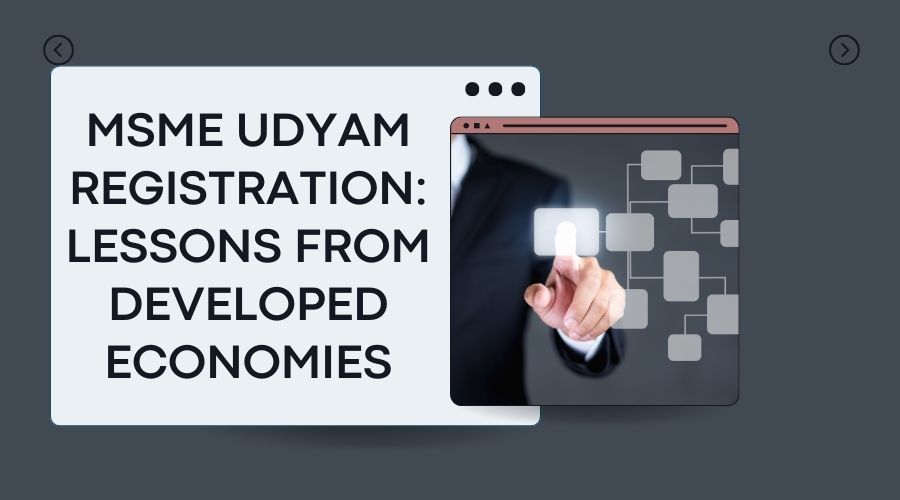Micro, Small, and Medium Enterprises (MSMEs) are the backbone of any economy, and their importance cannot be understated. As a developing nation, India has recognized the significance of MSMEs and introduced the MSME Udyam Registration initiative to promote their growth and formalization. However, there are valuable lessons that can be learned from developed economies in terms of supporting and nurturing MSMEs. In this article, we’ll explore some of these lessons that can be applied to the Indian context.
1. Access to Finance
Developed economies often have robust financial systems that provide easy access to finance for MSMEs. Indian MSMEs can benefit from improved access to affordable credit, innovative financing mechanisms, and streamlined loan application processes.
2. Technology Adoption
Developed economies emphasize technology adoption and digitalization. Indian MSMEs can embrace technology to enhance productivity, automate processes, and access global markets through e-commerce platforms.
3. Skilled Workforce
Developed economies prioritize skill development and education. India can invest in vocational training and skill development programs to create a highly skilled workforce that caters to the specific needs of MSMEs.
Related read:- Startups and Udyam Registration Online: A Winning Combination
4. Access to Markets
MSMEs in developed nations often have better access to domestic and international markets. India can facilitate market access for its MSMEs through trade agreements, export incentives, and market development programs.
5. Government Support
Developed economies offer comprehensive support packages for MSMEs, including financial assistance, grants, and incentives. India can expand its support ecosystem to include a broader range of benefits and resources.
6. Reduced Regulatory Burden
Streamlined and less burdensome regulatory processes in developed economies make operating easier for MSMEs. India can simplify its regulatory framework to reduce compliance costs and administrative burdens.
Also read:- Udyam Registration Certificate: Tips for Overcoming Application Hurdles
7. Research and Development (R&D)
Investments in R&D are common in developed economies, leading to innovation and competitiveness. India can encourage MSMEs to invest in R&D through tax incentives and grants.
8. Access to Networks and Clusters
Developed nations often have well-established business networks and industry clusters. India can create similar ecosystems to facilitate collaboration and knowledge sharing among MSMEs.
9. Sustainability Initiatives
Many developed economies focus on sustainability and green practices. India can incentivize MSMEs to adopt environmentally friendly practices through subsidies and certifications.
10. Export Promotion
Export promotion agencies in developed nations actively support MSMEs in exploring international markets. India can enhance its export promotion efforts and provide targeted assistance to MSME Udyam registration exporters.
11. Quality Standards
Developed economies prioritize quality and adhere to international standards. India can encourage MSMEs to meet and maintain high-quality standards through certifications and capacity-building programs.
12. Access to Intellectual Property Protection
Robust intellectual property protection systems in developed economies encourage innovation. India can strengthen its IP protection mechanisms to safeguard the interests of MSMEs.
Conclusion
India has made significant strides in supporting its MSME Udyam registration sector through initiatives like Udyam Registration. However, there are valuable lessons to be learned from developed economies in terms of providing even greater support, fostering innovation, and enhancing the competitiveness of MSMEs. By applying these lessons and continuously improving the ecosystem for MSMEs, India can further accelerate its economic growth and empower the vibrant community of small and medium-sized enterprises.
